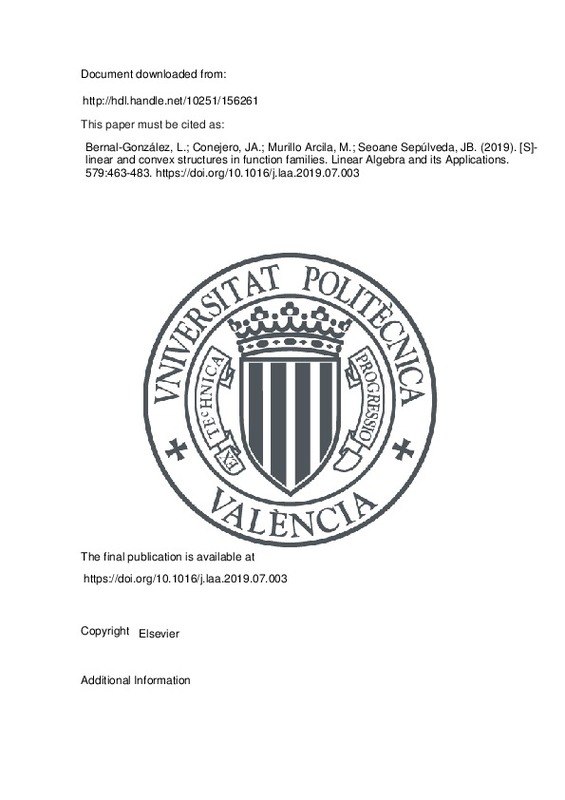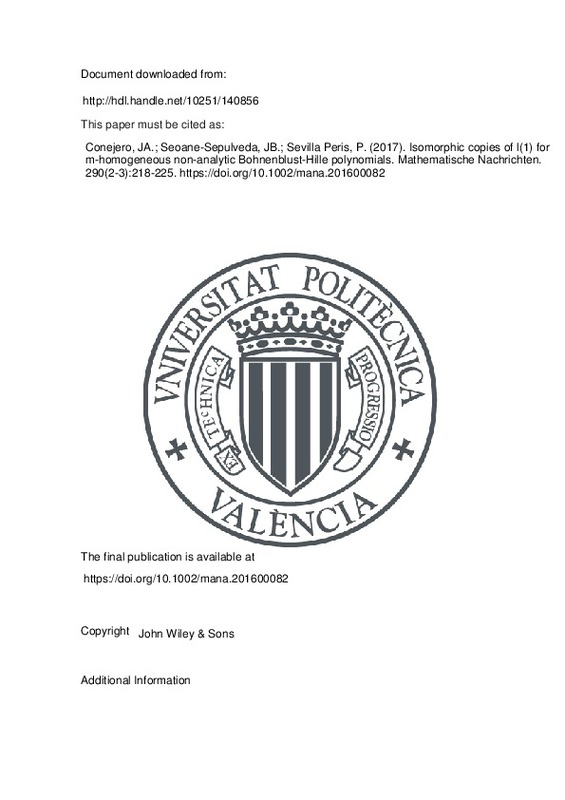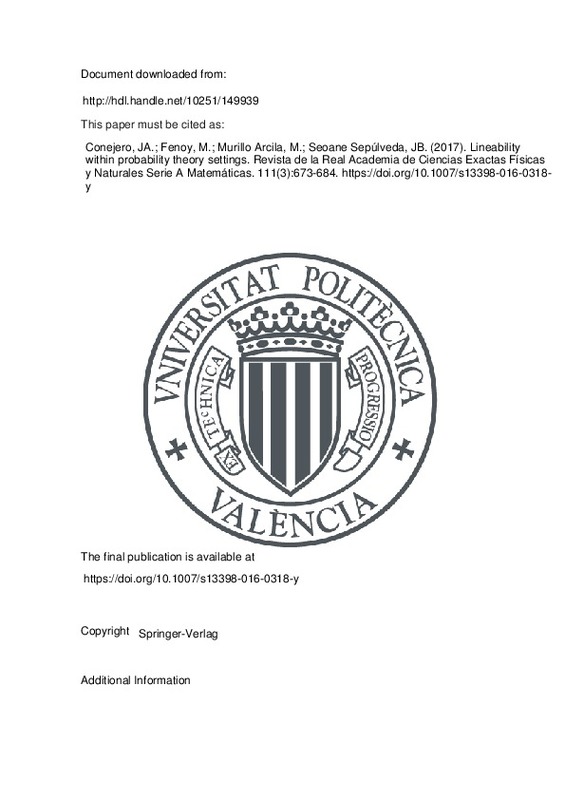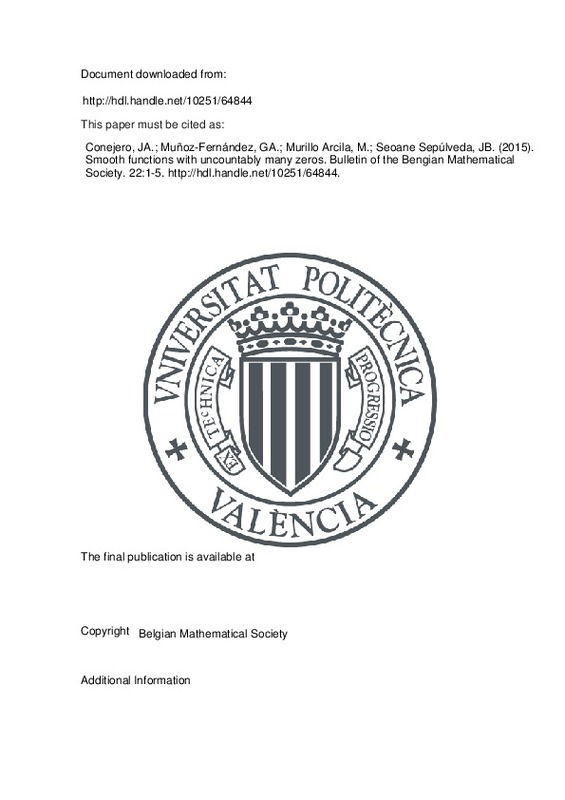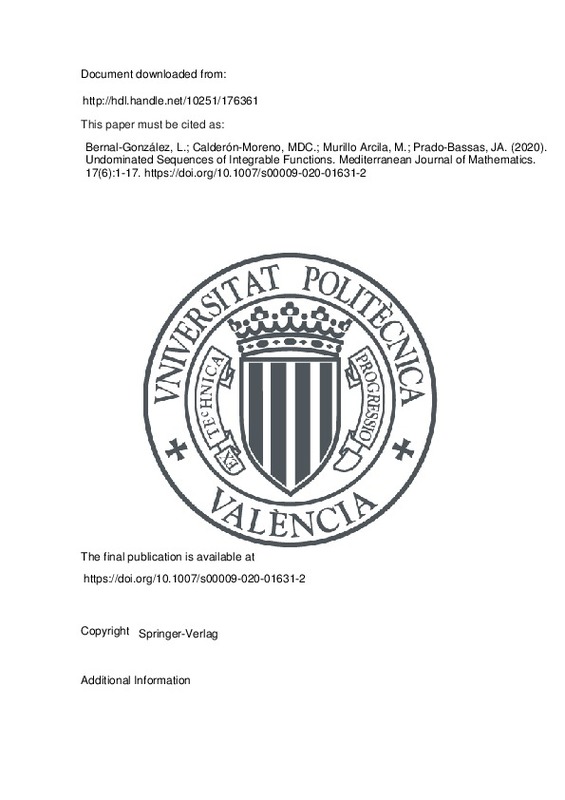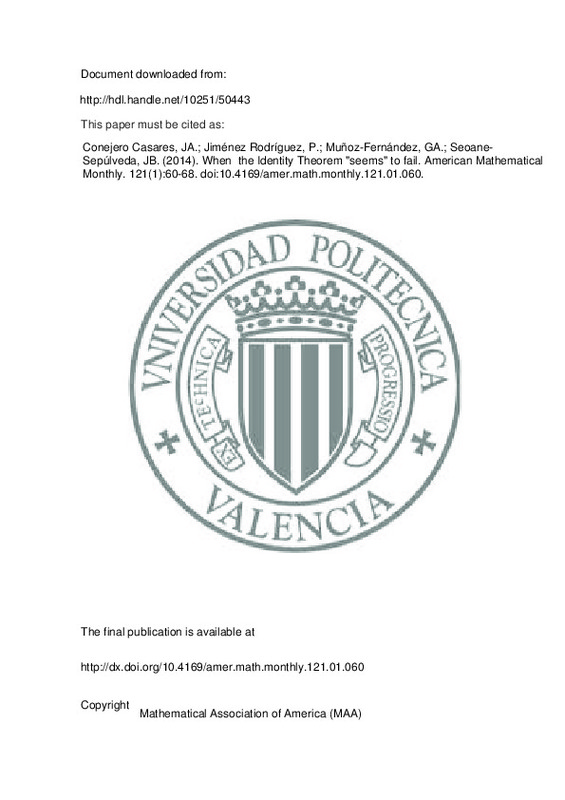

Listar por palabra clave "Lineability"
RiuNet: Repositorio Institucional de la Universidad Politécnica de Valencia
- RiuNet repositorio UPV
- :
- Listar por palabra clave
JavaScript is disabled for your browser. Some features of this site may not work without it.
Buscar en RiuNet
Listar
Mi cuenta
Ayuda RiuNet
Admin. UPV
Listar por palabra clave "Lineability"
Mostrando ítems 1-7 de 7
-
Bernal-González, L.; Conejero, J. Alberto; Murillo Arcila, Marina; SEOANE SEPÚLVEDA, JUAN BENIGNO (Elsevier, 2019-10-15)[EN] In this paper, the notion of [S]-lineability (originally coined by Vladimir I. Gurariy) is introduced and developed in a general abstract setting. This new notion is, then, applied to specific situations, as for ...
-
Conejero, J. Alberto; Seoane-Sepulveda, Juan B.; Sevilla Peris, Pablo (John Wiley & Sons, 2017)[EN] We employ a classical result by Toeplitz (1913) and the seminal work by Bohnenblust and Hille on Dirichlet series (1931) to show that the set of continuous m-homogeneous non-analytic polynomials on c(o) contains an ...
-
Conejero, J. Alberto; Fenoy, Mar; Murillo Arcila, Marina; Seoane Sepúlveda, Juan B. (Springer-Verlag, 2017-07)[EN] The search of lineability consists on finding large vector spaces of mathematical objects with special properties. Such examples have arisen in the last years in a wide range of settings such as in real and complex ...
-
Bernal-González, L.; Conejero, J. Alberto; Costakis, G.; Seoane-Sepúlveda, J.B. (Theta Foundation, 2018-06)[EN] In this note, it is proved the existence of an infinitely generated multiplicative group consisting of entire functions that are, except for the constant function 1, hypercyclic with respect to the convolution operator ...
-
Conejero, J. Alberto; Muñoz-Fernández, Gustavo A.; Murillo Arcila, Marina; Seoane Sepúlveda, Juan Benigno (Belgian Mathematical Society, 2015)[EN] In this short note we show that there exist uncountably generated alge- bras every non-zero element of which is a smooth function having uncount- ably many zeros. This result complements some recent ones by Enflo et ...
-
Bernal-González, Luis; Calderón-Moreno, María del Carmen; Murillo Arcila, Marina; Prado-Bassas, José A. (Springer-Verlag, 2020-10-20)[EN] In this paper, we investigate to what extent the conclusion of the Lebesgue dominated convergence theorem holds if the assumption of dominance is dropped. Specifically, we study both topological and algebraic genericity ...
-
Conejero Casares, José Alberto; Jiménez Rodríguez, Pablo; Muñoz-Fernández, Gustavo A.; Seoane-Sepúlveda, Juan B. (Mathematical Association of America (MAA), 2014-01)The Identity Theorem states that an analytic function (real or complex) on a connected domain is uniquely determined by its values on a sequence of distinct points that converge to a point of its domain. This result is ...
Mostrando ítems 1-7 de 7

Universitat Politècnica de València. Unidad de Documentación Científica de la Biblioteca (+34) 96 387 70 85 · RiuNet@bib.upv.es


